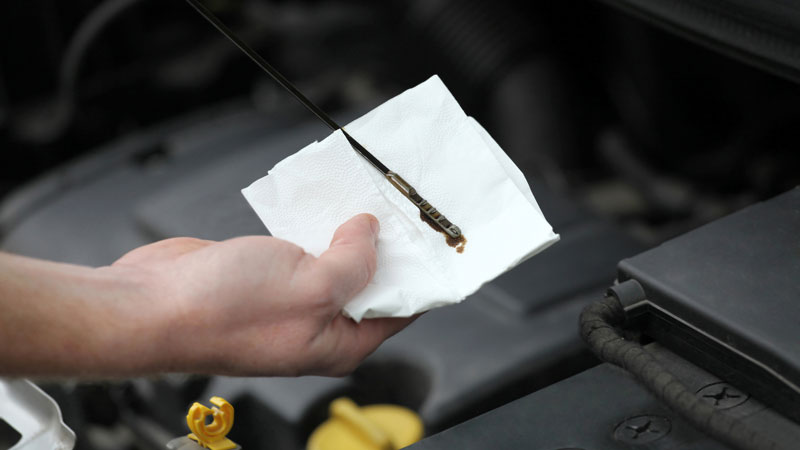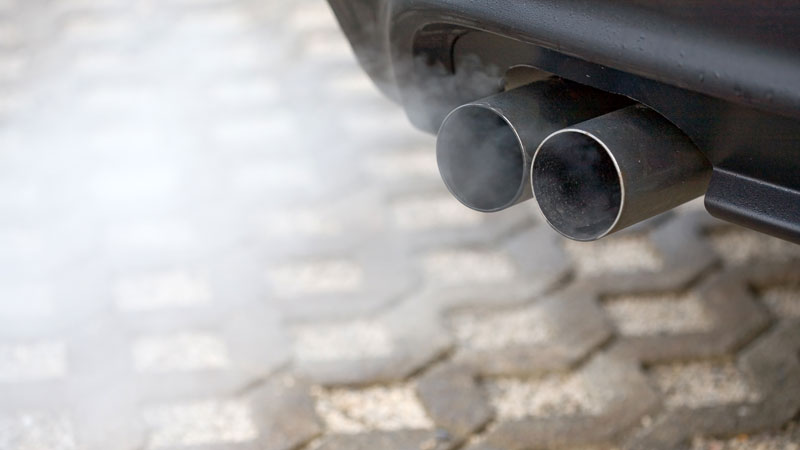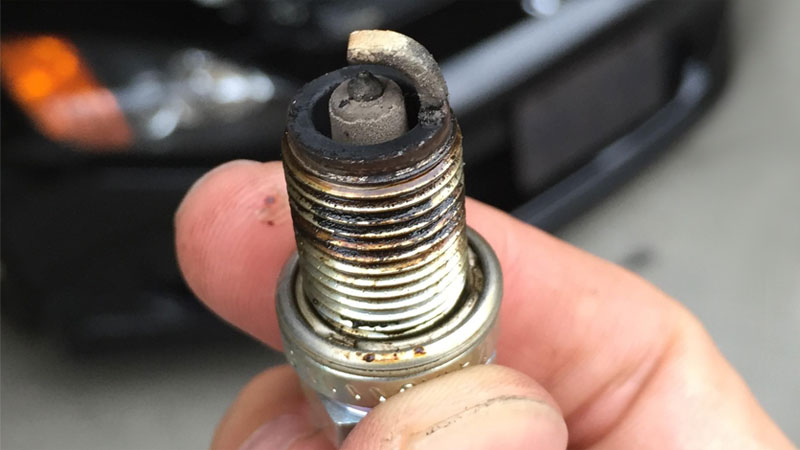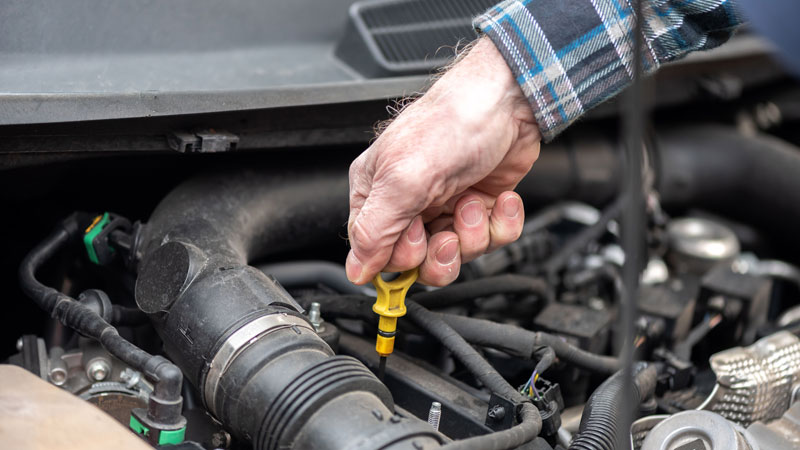Do you have a noisy, rattly engine? Perhaps you hear a rhythmic ticking noise coming from under the hood. No matter the type of unusual sound, one’s thoughts automatically begin to turn toward impending engine failure and the headache such an issue might cause.
Sometimes ticking is normal and expected. Sometimes a tick needs to be addressed as soon as possible. The following are several of the most common root causes of engine-related ticking noises, and what you should do if you hear it.
Is Engine Ticking Normal?
While any engine tick is deserving of your attention, such noises are not always cause for concern. In fact, some ticking noises are completely normal, and to be expected.
It is possible to have never paid attention to these standard ticking noises until your vehicle has been left to idle in a confined space where these sounds are magnified.
The following are several of the most common sources of ticking noises from beneath your vehicle’s hood which are completely normal and require no intervention.
1) Purge Valve
An engine’s purge valve releases stored gases from the charcoal canister into the engine’s intake, where they are burnt. As this valve operates a ticking noise can often be heard.
2) PCV Valve
It is also common for an engine’s PCV valve to tick from time to time. This primarily occurs as a PCV valve begins to age, and is no cause for alarm. If such a noise becomes a point of aggravation, the PCV valve can be replaced.
3) Injectors
A ticking noise can also typically be heard from an engine’s fuel injectors. Fuel injectors are electronically actuated, and commonly make a ticking or buzzing noise when in operation.
Direct injected engines have even noisier injectors than port injected engines. You’ll typically hear this on new vehicles made within the past 5 years. This is 100% normal operation and no cause for concern.
Common Causes of Engine Ticking Noise
There are numerous possible causes of engine-related ticking noises, which vary in their severity. While some ticking noises are easily tracked down, others can be quite maddening to locate.
When searching for the source of an engine’s ticking noise, the following are all excellent places to start.
1) Low Oil

If a ticking noise becomes evident, you should begin by checking your engine’s oil level. Low engine oil can starve a vehicle’s components of valuable lubrication, thereby leading to metal-on-metal chatter.
If your engine’s oil level is found to be low, it should be topped off immediately, and the source of any leaks should be located.
Do I Need to Fix It?
Absolutely; fix this issue as soon as possible. Starving your engine of oil is disastrous for the engine. It’s best to stop driving the vehicle until you are able to top off the engine oil.
2) Lifters
An engine uses a series of lifters in order to provide the necessary force to mechanically open and close its valves. With time, lifters can become worn, leading to the onset of a metal-on-metal ticking sound.
While regular engine oil changes can remedy such noises in certain instances, a defective lifter often requires replacement. Some oil additives can often lessen noise made by noisy lifters.
Do I Need to Fix It?
Sometimes, and the answer will depend on the type of lifters on your vehicle. Hydraulic lifters can be noisy from time to time. This is commonly referred to as “lifter tick”, and affects vehicles such as older Mazda Miatas. If the tick goes away within 10 minutes of starting the car or when the car is fully warmed up, this is no cause for concern.
If your vehicle has solid lifters, the valve lash may need to be adjusted. Valve lash adjustments are a more involved job that would be worth taking to a mechanic. Vehicles with solid lifters typically include a maintenance interval for adjusting the valves, if necessary. This should be listed in the owner’s manual.
3) Exhaust Leaks

Exhaust leaks of one type or another are extremely common, and will likely plague every vehicle at some point during its service life. As exhaust gases escape through a leak while under pressure, a ticking noise often results.
If located along the exhaust manifold, this leak can sound like an internal engine tick.
Do I Need to Fix It?
Yes, but it’s typically not urgent. Exhaust leaks lead to excessive engine noise and can trigger a check engine light. Any exhaust that leaks before the catalytic converters will be especially toxic to breathe.
4) Misadjusted Valves
An internal combustion engine utilizes intake and exhaust valves to pull air into each combustion chamber, and force exhaust gases out. Valve clearances are to be checked periodically, per manufacturer specification.
If an engine’s valve clearances are not checked and set as specified, clatter can result.
Do I Need to Fix It?
Yes. This is related to the valve lash adjustment for solid lifters, mentioned under the Lifters section of the article.
See Also: 4 Symptoms of Bent Valves
5) Damaged or Worn Spark Plugs

Spark plugs thread into the heads of an internal combustion engine. If a spark plug does not fully seat to the head when installed, or if damaged threads prevent a spark plug from tightening fully, then a bypass of combustion and exhaust gasses can lead to a noticeable ticking noise.
Do I Need to Fix It?
Yes. Worn spark plugs reduce fuel economy, throw misfire codes, and lead to a vehicle that runs poorly overall. Spark plugs are cheap and easy to replace on most vehicles.
6) Worn Accessory Drive Pulleys
An engine features numerous belt-driven accessories, These accessories feature pulleys, which utilizes bearings to facilitate smooth rotation.
If these bearings wear excessively, freeplay can result, thereby leading to the onset of a ticking or clattering sound.
Do I Need to Fix It?
Yes. Work accessory pulleys can seize, causing issues with the serpentine belt and other accessories in the system.
See Also: 6 Causes of Timing Chain Noise
Why is My Engine Ticking After an Oil Change?

If you have noticed that your vehicle’s engine has begun ticking after an oil change, you might be quite alarmed, and for good reason. An engine’s health is directly dictated by its ability to circulate clean oil of the proper volume.
If the oil is not changed at a designated service interval, or if a vehicle’s oil level drops below its specified operating capacity, a number of issues can quickly arise.
If your oil has recently been changed, yet your engine ticks, it is imperative to conduct a series of quick visual checks. The following steps will assist you in completing this inspection.
1) Check Oil Level
You should begin by checking your engine’s oil level. It is possible that the oil was not filled to its full operating capacity when changed. If this level is indeed low, add oil until reaching capacity.
2) Check for Leaks
Visually inspect your oil filter and oil drain plug for signs of escaping oil. A piece of cardboard can be placed under your vehicle’s running engine and left sitting for a brief period of time. This cardboard can then be removed and inspected for any signs of oil leakage.
3) Check for Drain Plug and Oil Filter Tightness
The presence of any leaks will warrant a check of the drain plug and oil filter tightness, It is possible that either of these two items could have been left partially loose during your vehicle’s oil change, and serve as the source of a tick-inducing leak.
There are several notable causes of engine-related ticking noises after an oil change. By promptly addressing an issue of this nature, you will minimize the occurrence of serious, and permanent component damage.
The following are several likely causes of engine ticking, following the completion of an oil change.
- Low oil level
- Loose oil drain plug
- Loose oil filter
- Faulty oil filter check valve
Ticking vs Knocking Noise

At times it can be difficult to discern between various types of engine-related noises. Many motorists describe a ticking noise as “knocking”, though the two sounds are not interchangeable.
While a ticking noise is higher pitched and closer in context to a rattling of sorts, engine knock sounds more like a repetitive hammering and is often much louder.
Engine knocking is also generally far more serious than ticking. A loud “smacking”, or knocking noise often signifies a much more severe internal engine issue than a tick. Many of these originate in the engine’s rotating assembly or connected components.
The following are several of the most common causes of engine knock.
- Piston Slap
- Worn Bearings
- Incorrect Timing
- Carbon Deposits
- Low Fuel Octane
- Power Windows Not Working? (10 Common Causes and How to Fix) - February 8, 2024
- 14 Causes of a Car Losing Power When Accelerating - January 23, 2024
- 13 Causes of Poor Gas Mileage (Increase Your MPG) - December 13, 2023


I have a 86 Chevy with a 350 4 bolt main Crate motor. I had an exhaust leak and repaired it. Then during a an oil change I thought the exhaust was leaking again. I purchased the gaskets to change and a friend said it was a ticking in the lifts or so he thought. He did a valve adjustment on #1 cylinder and the lifter would loose adjustment. He did the exhaust, same thing. He changed all lifters and it did not fix the issue. Still a ticking at #1. He thinks it maybe deeper into the engine. ? Any Ideas. TIA.
Get it checked by qualified mechanic – so many things it could be. Mine was faulty manifold – very expensive – but it could be something as simple as low oil level.
On Ford F-150 I can barely hear tick tick took it to my mechanic still have not found the problem what could it be?
What did your mechanic say about it?
Literally read the article
Could be the timing chain too.